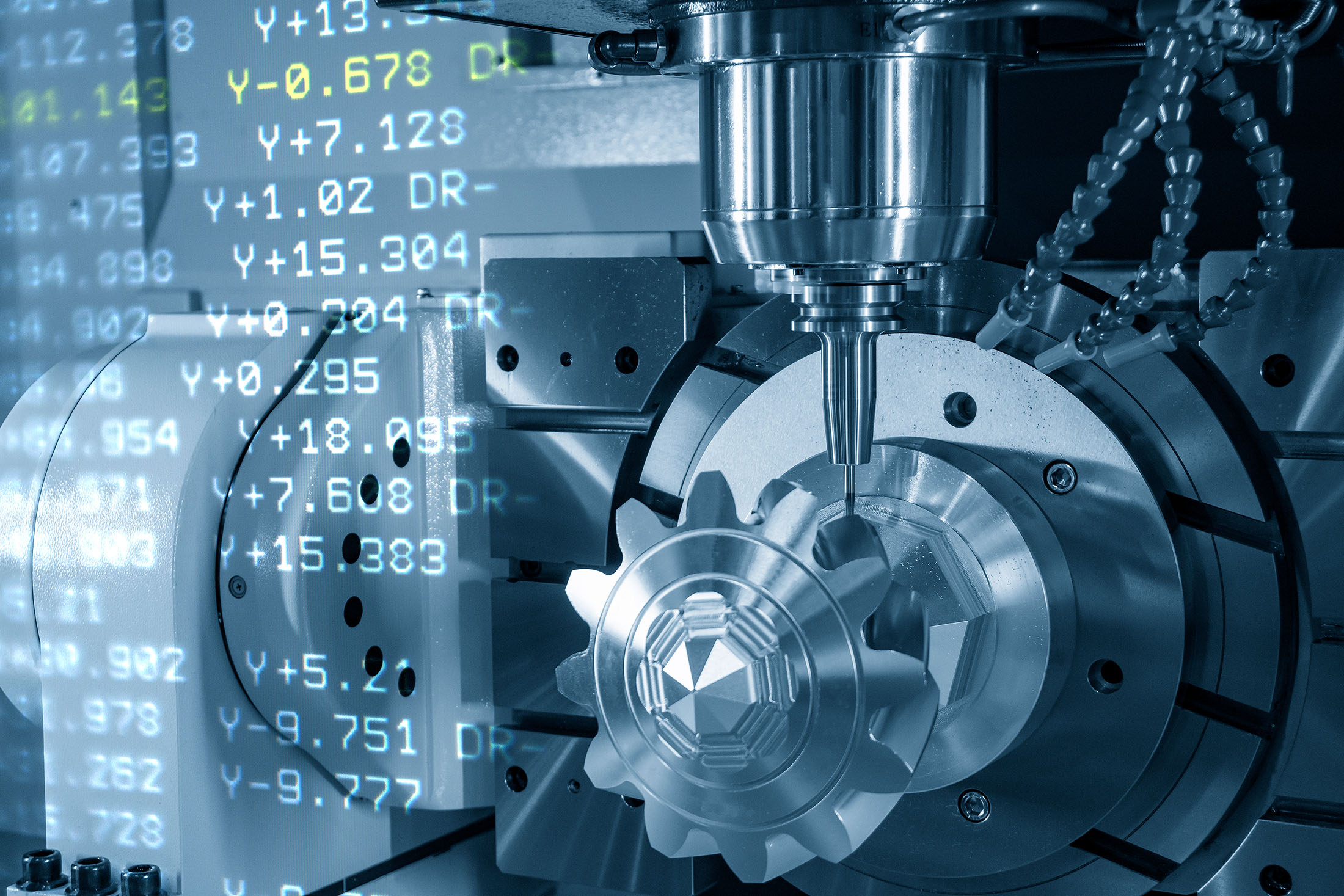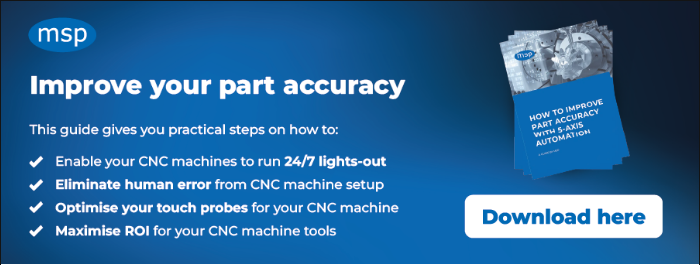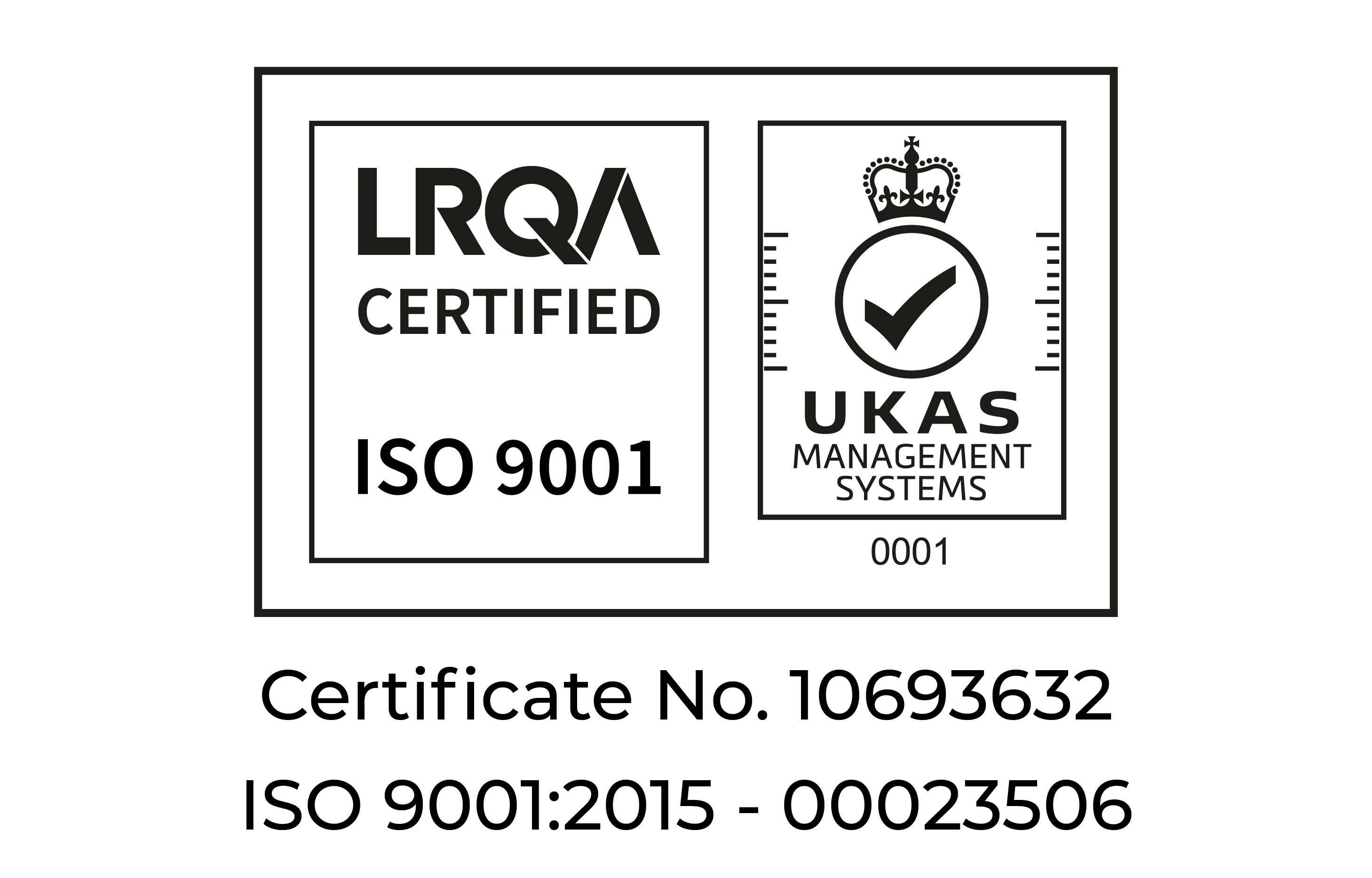Share this
5 Reasons to Automate Your CNC Manufacturing Processes
by Hannah Brown on May 4, 2022 4:30:00 PM

CNC machine tools are a staple of any shop floor in the advanced manufacturing industry, yet what’s often overlooked is the human input that’s required for them to operate at their best. Any manual processes can be detrimental to the precision, productivity and reliability of a CNC machine so any CNC user should be thinking about introducing automation into their processes as soon as possible. In this article, we explore the benefits of automation and explain why it is vital for getting the most out of your CNC machine.
1 - Reduced Scrap And Waste
The main problem with manual processes is their ability to introduce human error and affect accuracy and reliability. In CNC manufacturing, these errors often manifest themselves onto machined parts and cause failures in final inspection. This results in parts needing to be reworked or sent to scrap. In advanced manufacturing, and especially on 5-axis machine tools, these manual processes include probe setup and part alignment which, if not performed accurately, will cause parts to be machined out of tolerance. Automating these processes eliminates any error and ensures parts will come off the machine right-first-time; every time.
2 – Enhanced Productivity
Automation is key to boosting productivity levels, as automated processes take significantly less time to complete and can free up your operators so they can work on more productive or business-critical tasks. Automation enables your machines to run 24/7, lights-out, making it possible to run them outside of scheduled operator shifts or during periods of high operator absence. For example, additive manufacturing company, 3T-am, was able to introduce 24/7 lights-out machining to its shop floor with automation and went from machining one part per day to machining a whole batch of parts in the same amount of time.
3 – Replicable And Reliable Results
If a process is carried out manually, it’s almost impossible to do it in exactly the same way (or time) every time. This can result in variable setup times and introduce error into the process. These errors may start off small but can quickly build up throughout production until they cause serious discrepancies in your parts. In comparison, once a process has been automated, it will be completed in the same way (and time) every time with no risk of human error. No matter what part is being produced, you can reliably predict the setup and production schedule, removing the guesswork from the production process.
4 – More Confidence
Automated systems speed up processes and make them more reliable, and they often provide lots of additional information about the manufacturing process. For example, manual processes are less able to alert you in real time if your CNC machine is underperforming or if a part will be machined out of tolerance – in a way that automated systems can. This valuable insight stops bad parts from being made, boost profits, and can significantly boost confidence on the shop floor because the risk of machining bad parts is reduced to a minimum.
5 – Increased Safety
Any CNC manufacturing process that has manual elements will require an operator to enter the machine volume at some point. This poses serious health and safety risks and could potentially be damaging to your business if things go wrong. In contrast, automated processes allow for completely closed-door machining. Operators can press a button on the controller to set processes away safely and with little to no risk to themselves.
What Next?
Not sure where to start? Get in touch with us today and we can provide more case studies, videos and tips about how to start automating your processes and minimise errors on your shop floor.
Share this
- February 2026 (1)
- December 2025 (1)
- August 2025 (1)
- June 2025 (2)
- April 2025 (1)
- March 2025 (2)
- January 2025 (1)
- November 2024 (1)
- April 2023 (2)
- December 2022 (2)
- July 2022 (1)
- May 2022 (4)
- November 2021 (1)
- October 2021 (1)
- September 2021 (2)
- January 2021 (1)
- December 2020 (1)
- December 2018 (1)
- August 2018 (1)
- August 2017 (1)






